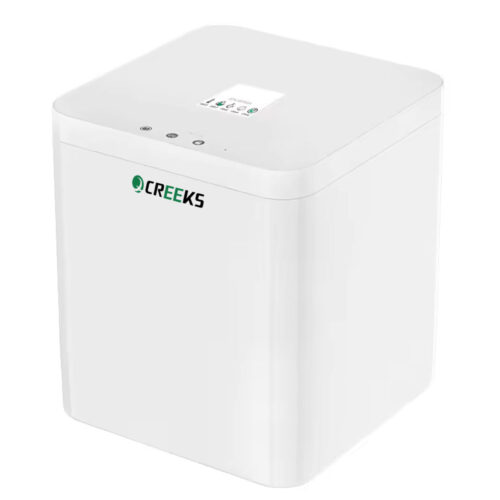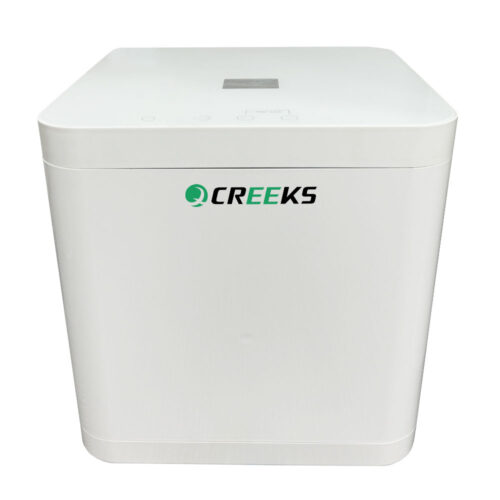Compost, primarily known as a fertilizer, is also used as an energy source besides agriculture. Compost, commonly chosen in agriculture, is created through the decomposition and amalgamation of organic materials. Organic composts with rich content enable high yields from soil and plants.
Areas of Use of Compost in Soil and Plants:
- Gardens
- Greenhouses
- Agriculture
- Floriculture
- Landscaping
- Lawn areas
- Parks
- Cemeteries
- Military facilities
- Golf courses
- Erosion control
- Mining
- Quarries
- Odor removal
- Post-forest fire rehabilitation
- Besides these areas, compost can also be used for different purposes.
Soil Enrichment
The most common application area for compost fertilizers is the soil. Compost fertilizers have many positive effects on the soil. Particularly chosen for infertile soils, this substance creates humus and helps nourish the soil.
Compost can be used in all soil types, increasing the soil moisture level. In periods of high temperature or low rainfall, it prevents the soil from drying out, thus increasing its productivity. Compost meets the need for fertilizers and prevents the damage caused by chemical fertilizers, blocking the emergence of plant-damaging diseases and insects.
Pollution Prevention
Stored or disposed wastes can cause significant damage to the environment, with pollution being a primary concern. Pollution can also arise from the harmful liquid and gaseous substances waste generates.
The formation of methane gas during the storage process and the leakage of wastewater can lead to irreversible pollution, harming health. Producing compost from waste stands out as an ideal solution for preventing pollution.
Preventing waste from mixing with drinking water sources during heavy rainfall days benefits public health. Dry soil can prevent plants from anchoring properly, leading to erosion. Compost helps the soil retain moisture, reducing the risk of erosion.
The composting process breaks down gaseous components and eliminates bad odors while trapping heavy metals in the soil, preventing them from reaching plant roots.

Where Can Home Composts Be Used?
Home compost production benefits the world and society. Produced in an extremely practical and low-cost manner, composts can be used for various purposes. Among these, the most common is plant cultivation.
Home composts, with their rich content of high values, enhance the yield from soil and plants while strengthening plants and enabling a rapid growth process.
Another area of use for home composts is as an energy source. As essential resources like electricity and fuel in the modern world rapidly deplete, alternatives are sought. Among these alternatives, compost stands out as the most natural and sustainable energy source. Produced from used and functionless organic materials, compost is a long-term and low-cost energy source. Due to these features, it is economically beneficial and can be prepared in a very practical manner for various uses.
Benefits of Using Compost
Using compost offers many benefits. By recycling organic waste, compost reduces waste amounts and protects the environment.
It helps aerate the soil and maintains its pH balance. It neutralizes toxic substances in the soil, preventing damage to plants. It maintains the soil moisture level.
It nourishes plants, strengthens them, and accelerates their growth process. It reduces the use of chemically infused substances, allowing plants to grow naturally.

How Is Compost Made?
Making compost is a very easy process. There are various methods available for making compost. In addition to classic methods, there are compost machine options.
In the classic method, a large container with an aerated base, a shovel, and compost materials are needed. Materials are divided into brown and green. A layer of soil is placed at the bottom of the container. Then, materials are added in the order of brown, green, and brown.
This process continues until the materials are depleted. For the decomposition process to proceed correctly, it is recommended that the layers be even and no more than 10 cm thick. Keeping the soil always moist and airing it at regular intervals facilitates the decomposition process. After a few weeks, the mixed compost can be sifted and used as fertilizer.
Options for compost bins, preferred for quick and easy compost production, include many functional features. Compost machines that ensure the compost is ready quickly are popular for being quiet and odorless.
Creeks draws attention with its compost machines equipped with the latest technology, occupying 60% less space compared to their counterparts. Creeks, processing organic wastes at home for reuse, has a high satisfaction rate with its environmentally friendly products.
We provide a wide range of models composting machines for both home and commercial use and offer options suitable for every budget and purpose. Devices that can be operated with a single button are made from durable materials.
By carefully selecting a compost machine model from Creeks that suits your criteria, you can recycle your organic wastes and reuse them as soil and energy sources.
HOUSEHOLD COMPOSTER
HOUSEHOLD COMPOSTER




